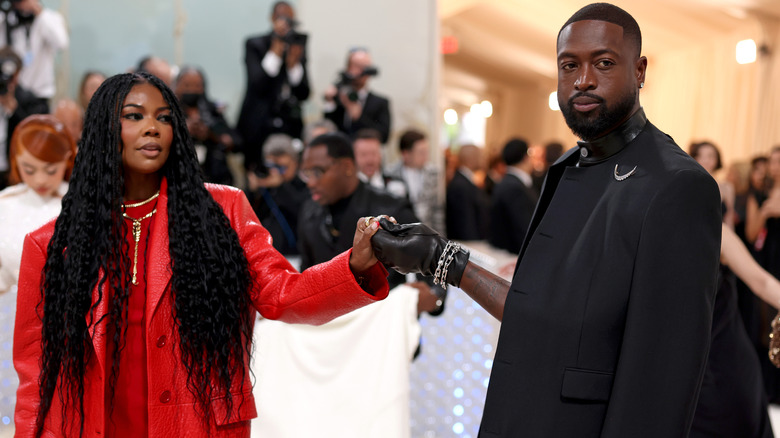What Is Hyper-Independence & How Can It Impact Your Relationships?
We're living in an era of independent women. While the gender pay gap is still a problem, according to the National Association of Realtors, single women account for 17 percent of people who bought homes in 2022, compared to single men at only 9 percent. This independence has also spilled over into the falling U.S. birth rates, as experts point to the fact that women are putting education and careers before marriage and having kids.
But while people of all genders are relishing in their independence in their own ways, when a woman does it, people take notice — then sometimes condemn them for it. Recently actress Gabrielle Union revealed that she and her husband, basketball player Dwyane Wade equally share all their household bills — meaning 50/50. Naturally, this resulted in the Internet sharing their thoughts on the topic, since Wade's net worth far exceeds Union's, calling out Union for suffering from hyper-independence. Of course, how this couple decides to split their bills is nobody's business, but when public figures share such information, it gains attention — and one of the popular online hot-takes features the term "toxic independence."
What's hyper-independence?
Independence is an important quality, and women have come a long way in attaining it. Case in point: women couldn't even get their own credit cards without a male co-signer until 1974 — that's less than 50 years ago. It also wasn't until 1974 that women were allowed to open their own bank accounts. Just think about that.
But as much as independence is paramount to one's identity and how one wants to live their life, in some situations, it can evolve into hyper-independence, also called toxic independence. In other words, they take their independence to an unreasonable degree. In many cases, this behavior is a response to relationship trauma.
"Hyper-independence itself isn't a personality trait, rather a survival trait developed through intergenerational, childhood, or adult adverse experiences," trauma therapist Simone Saunders, M.S.W. tells Shape. "Some of the childhood experiences that result in hyper-independence are childhood emotional or physical neglect — emotional neglect is when a parent does not respond enough to a child's emotional needs during the brain development period — and parentification, when children assume responsibilities that are developmentally inappropriate, [e.g.,] being a mediator for the family, being involved in financial decisions."
It's these types of childhood experiences that inadvertently teach someone that those who are supposed to be caring for them and providing for them cannot do so. Because of this, as Saunders points out, survival mode kicks in and they begin to only rely on themselves for all the provisions they need in life.
How it can affect your relationships
When someone is hyper-independent, it can create problems in their relationships — all relationships, not just romantic relationships — because the belief that you can only rely on yourself can be alienating. You're constantly trying to navigate things on your own, unable to ask for someone to give you a hand when you need it out of a sense of pride.
"Toxic independence is the mindset of always having to do things on your own," therapist Ashley Lowe-Simmons, LCSW-C, FSW tells Essence. "People that have toxic independence usually never ask for help, they don't ask people to do things for them. It's almost a control mechanism and feelings of overdoing things so that a sense of strength is maintained."
Being independent is a beautiful thing. Knowing that you have full autonomy over your life is fantastic and something that not everyone will be able to achieve in their lifetime. But no one can do everything on their own and sometimes we need to turn to people in our lives to help us. Conceding that you can't do something and you need outside help shouldn't be seen as a weakness but a strength. People need people. When we help those in our lives and let them help us, it doesn't just create a bond and a sense of trust, but it's how relationships work: They're give and take.
You should be proud of your independence, but if you're shutting people out to prove you can do everything yourself, then revisit your definitions of independence and dependence. Needing and asking for help doesn't strip you of your independence, it makes you human.


